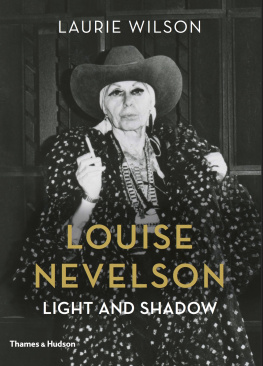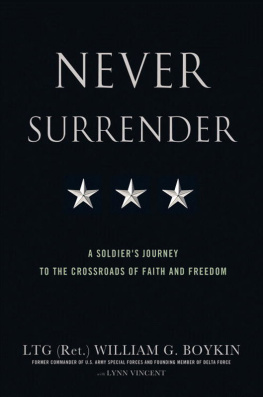A SPYS
JOURNEY

A CIA MEMOIR
FLOYD L. PASEMAN

What does he next prepare?
When will he move to attack?
By water, earth, or air?
How can we head him back?
Shall we starve him out if we burn
Or bury his food supply?
Slip through his lines and learn
That is work for a spy!
(Drums)Get to your business, spy!
from The Spies March, Rudyard Kipling
To my family, Jill, Ashley, Adam, my grandson Brett,
and to Dulcinea, Hamlet, Elliot, and Cleopatra.
First published in 2004 by Zenith Press, an imprint of MBI Publishing Company,
400 First Avenue North, Suite 300, Minneapolis, MN 55401 USA.
Copyright 2004, 2009, 2010 by Floyd L. Paseman
Hardcover edition published in 2004. Softcover edition 2009. Digital edition 2010.
All rights reserved. With the exception of quoting brief passages for the purposes of
review, no part of this publication may be reproduced without prior written
permission from the Publisher.
Zenith Press titles are also available at discounts in bulk quantity for industrial or sales-promotional use. For details write to Special Sales Manager at MBI Publishing Company, 400 First Avenue North, Suite 300, Minneapolis, MN 55401 USA.
To find out more about our books, join us online at www.zenithpress.com .
Digital edition: 978-1-61673-273-8
Hardcover edition: 978-0-7603-2066-2
The Library of Congress has cataloged the hardcover edition as follows:
Paseman, Floyd L.
A spys journey : a CIA memoir / Floyd L. Paseman.
p. cm.
ISBN-13: 978-0-7603-2066-2 (hardback)
ISBN-10: 0-7603-2066-7 (hardback)
1. Paseman, Floyd L. 2. United States. Central Intelligence Agency. 3. Intelligence
officers--United States--Biography. I. Title.
JK468.I6 P37 2004
327.12730092--dc22
2005295562
Layout by Lynn Dragonette and LeAnn Kuhlmann
Cover by Tom Heffron
Front cover photo by Lee Klancher
Back cover photo by Peter Gallante, courtesy Cardinal Stritch University
Printed in United States of America
CONTENTS
PREFACE
Why this book at this time? I felt that my reflections after one of the longest careers in U.S. intelligence historyand after more than a decade at the tops ranks of the Central Intelligence Agencywould be of general interest and would help shed some much-needed light on what intelligence really does do, really does not do, and how fragile the whole process of human intelligence really is. I decided to proceed with a memoir with the encouragement of one of the best intelligence historians in the United States, Dr. Ralph Weber, who repeatedly reminded me, You are the only one who can tell your story. This, and a belief that the readers of history deserve a recounting of history as it really was, led me to this work.
ACKNOWLEDGMENTS
I would like to acknowledge the significant help from several sources: First, Dr. Ralph Weber of Marquette University, who was responsible not only for my entry into academia, but who also urged me to do my memoirs while my memory was still fresh; second, Dr. John Krugler, also of Marquette University, who was one of the first professors to recognize what we as CIA officers had to offer, and whose critical look at intelligence issues contributed greatly to my doing the same thing; and Dr. Terry Roehrig, of Cardinal Stritch University, who also saw the value of a practitioners point of view to his political science and history department and whose counsel was also of great assistance.
I also wish to thank the Center for the Study of Intelligence, whose director at the time, Dr. Brian Latell, was very enthusiastic about my participating in the Officer in Residence program and without whose support I could not have participated in this most important program. I also wish to thank the Centers History Department, in particular Dr. Michael Warner and Dr. Kevin Ruffner, both of whom took extra time to provide me with valuable materials for my teaching.
I could not have maneuvered through the book publishing process without MBI Publishing Company. Working with Steve Gansen, one of their premier editors, was a pleasure. Richard Kanes encouragement kept me going as well. Richard was patient with all my status notes and worked hard to bring this book to publication. These gentlemen made the process easy and enjoyable. They are true professionals.
Lastly, I would like to thank Dr. Scott Koch and Mr. Bruce Wells of the CIA Publication Review Board, without whose help I would have been unable to navigate the incredibly arcane twists laid out by my own Directorate of Operations.
In the end, any errors are of my own making. However, as they used to say in the television drama Dragnet, The story you are about to hear is true. All of it.
INTRODUCTION
It is important to state at the outset that, in the tradition of intelligence memoirs, the names, places, dates, and targets in this book have been changed to protect the identities of agents and the operations in which I participated. There are two exceptions, in which times and events were in the public record: my time as chief of the East Asia division, and my time as Chief of the CIA, Germany. Even in these cases, out of necessity, I have altered an occasional name or place to protect agents and operations. And, of course, there are many more stories of success that I cannot go into, since many of the players in these successful operations are still alive and thus, at risk. Nonetheless, all the accounts are real and the events took place exactly as described. Events occurring during and after my overt assignment as an Officer in Residence in 1998 are accurate as written.
PROLOGUE
In 1994, the U.S. media reported on the difficulties of being the Central Intelligence Agency Chief in Germany. They noted that CIA chiefs there usually had a difficult time carrying out their tasks and that there was unanimous agreement within the CIA Directorate of Operations (DO) that Bonn was a damn hard posting. They had that right!
My selection as CIA Chief, Germany, had progressed in fits and startsan indication, perhaps, that few in the clandestine service are inclined to deal with the headaches and challenges of the German job. I guess I should have been forewarned. When I took the personal phone call from the Deputy Director for Operations (DDO) congratulating me on my new assignment as CIA Chief, Germany, I might have dickered in advance for a promotion that never came, even though I served longer in this thankless job than any chief in memory. The irony is that I took that call as two other senior posts in Europe were offered to me at the same timeneither of them Bonn. However, I am getting ahead of myself.
ONE
IN THE BEGINNING
19631967
It was a sorority woman who first drew my attention to the CIA. Early in the spring of 1963, a high-achieving fellow student at the University of Oregon and member of the Alpha Gamma Delta sorority approached me and told me that she had applied for, and been accepted by, the Central Intelligence Agency. She suggested that I should apply, considering I had garnered academic honors. She provided me with the sterile address the CIA used for applicants, and, curious more than anything else, I sent a short note off asking about the possibilities of employment. Several weeks later, I received an envelope addressed to me with no return address. The letter inside was folded so the CIA emblem was not visible until the letter was unfolded. We are pleased to hear of your interest in the CIA. Someone will be contacting you. So much for that, I thought.












